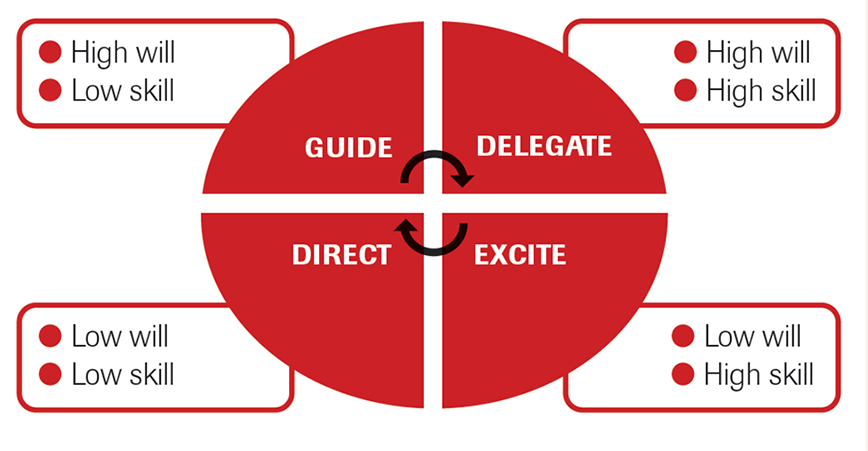Low will/high skill (excite)
This employee is highly skilled, but their motivation is affected. They may have reached a plateau and need a new challenge. They could be experiencing workplace stress or other work factors that are hampering their motivation. It is also quite possible that while they are highly skilled, they could be overwhelmed by a current role, task or project delegated to them. The manager's objective is to:
- Identify the source of low will (task/management style/personal factors)
- Monitor and provide feedback.
The manager must pay attention to building confidence and providing assurance that they are equipped to complete the task. The employee may need some form of reward. Selling the positive benefits of the task and how this will contribute to their overall job performance is key.
High will/high skill (delegate)
A highly skilled employee who is also looking for opportunities to grow and develop. The manager's role is to:
- Promote freedom to do the job
- Create objectives (not impose the method)
- Encourage them to take on responsibility and involve them in decision making
- Take appropriate risks
- Avoid over managing
- Give praise €“ take care not to ignore them.
It is easy to ignore this type of employee as they can work independently. Managers could also overload this type of individual.
Key to encouraging employees to assume more responsibility is management style. Using the skill/will matrix (see below) can help managers to identify where the employee is and how best to manage to ensure successful and responsible delegation. Understanding where an employee is on the skill/will continuum allows the manager to create focus, ie build skill level and develop confidence.
Figure 1: The skill/will matrix

Activity
Using the skill/will matrix, assess your current employees and identify:
- Are you using the correct management approach to delegation/empowerment?
- What skill/will gaps exist?
- How will you address any gaps to encourage employees to assume more responsibility?
